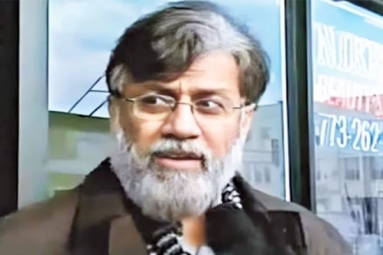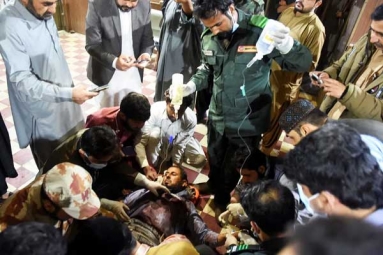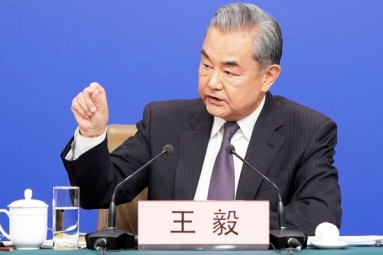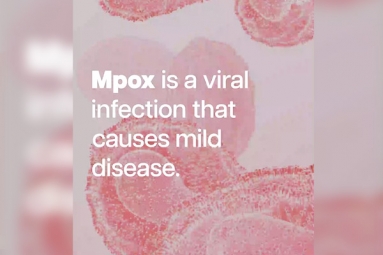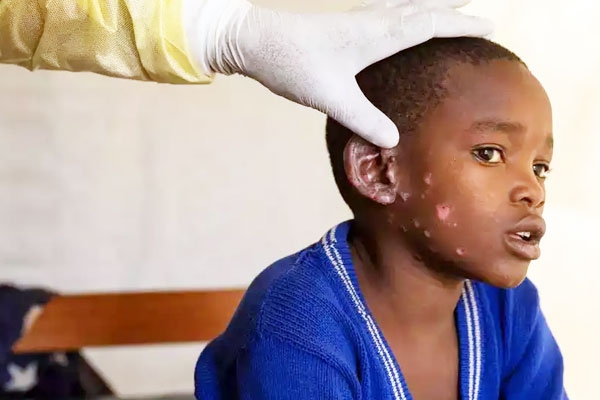
(Image source from: REUTERS)
The global community remains vigilant as the specter of another major health crisis looms large, over four years since the COVID-19 pandemic was first declared by the World Health Organization (WHO) in March 2020. In a recent move, the WHO has classified the recent surge of Mpox, or Monkeypox, in Central Africa as a global emergency, calling for immediate action. The virus, which has already claimed over 500 lives, primarily in the Democratic Republic of Congo, has now spread to other African nations and beyond, reaching countries like Sweden and Pakistan. Alarmingly, the Democratic Republic of Congo has reported over 96% of the world's recorded 17,000 Mpox cases this year. While India has not yet reported any cases, the Central government is closely monitoring the situation, cognizant of the immense challenges faced by the healthcare infrastructure during the COVID-19 pandemic, which resulted in numerous fatalities. Mpox is a zoonotic infection that manifests with flu-like symptoms and skin lesions, and in some instances, can be fatal. Recognizing the potential threat, the WHO first declared Mpox a global emergency in 2022.
The mpox virus is divided into two distinct groups: Clade 1, which is mainly found in Central Africa and tends to be more severe with a higher mortality rate, and Clade 2, which is milder and prevalent in West Africa. Notably, Clade 2 caused a public health emergency in 2022, with around 300 relatively mild cases reported in Sweden. However, the current outbreak is being driven by the newer and more serious Clade 1b, identified just last year. While experts are concerned that mpox could be as dangerous as COVID-19 or swine flu, the mode of transmission sets it apart. Unlike the airborne nature of SARS-CoV-2 and swine flu, mpox is primarily spread through close physical contact, such as touching an infected person's skin, talking or breathing in close proximity, or using their contaminated clothing or bedding. This key difference suggests that mpox is unlikely to reach pandemic levels like COVID-19, as it requires much more direct and intimate contact to be transmitted.
Rakesh K. Mishra, the former head of the Centre for Cellular and Molecular Biology, explains that India documented its inaugural Mpox case in Kerala in 2022, involving a traveller from the United Arab Emirates. Subsequently, the virus proliferated across the nation, with instances surfacing in Delhi, even among people without any recent overseas journeys. India has reported 27 confirmed cases and one death related to the disease, according to the World Health Organization. The last recorded case in the country was in March this year, in the state of Kerala, and since then, no new instances have been reported. In response to the WHO's warning, both the Central and state governments have taken swift action. Advisories on monkeypox have been issued, and public health measures are being implemented. The Indian Council of Medical Research (ICMR) and the National Centre for Disease Control (NCDC) are closely monitoring the situation and reviewing international trends. In Tamil Nadu, the Directorate of Public Health and Preventive Medicine (DPH) has already issued alerts. Authorities are tracking passengers arriving from the Democratic Republic of Congo and Central African countries at airports and ports. Cities with a significant presence of African students, such as Hyderabad and New Delhi, have also been placed on high alert. The ICMR researchers isolated the first Mpox strain in 2022, and pharmaceutical companies and drug manufacturers are being called upon to develop vaccines and testing kits for the virus. Existing vaccines for smallpox and chickenpox may also provide protection in India.
The spread of the disease requires close monitoring across different nations, and existing DNA-based diagnostic methods should be readily available for screening. Although an effective vaccine exists, ensuring adequate supply may prove challenging. Simple precautions, such as avoiding close physical contact with suspected or potentially infected individuals, maintaining distance from those exhibiting symptoms, and wearing masks, can be instrumental in containing the infection's spread, as noted by Mishra. Developed countries, predominantly in Europe, already have vaccines accessible for those at higher risk of monkeypox. Given their robust healthcare systems, these nations will likely face fewer difficulties in managing the disease. In contrast, underdeveloped African countries, lacking both vaccines and the resources to procure them, remain the most vulnerable and in dire need of assistance.







